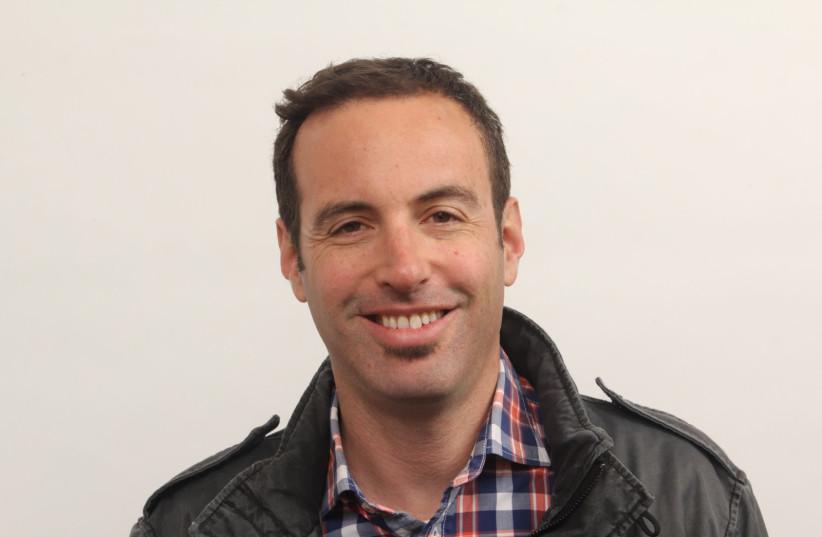Gil Horksy is the senior director of ventures for SnackFutures at Mondelēz International, one of the world’s largest snacks companies. The company is responsible for internationally-recognized brands such as Oreo, Cadbury Dairy Milk, Milka and Toblerone chocolate; Sour Patch Kids and Trident gum.
Horsky has spent more than a decade in the food industry, and has gained insight into current food-tech trends in Israel, as well as the industry’s high-potential future.
How does Israel compare to other nations in terms of its participation in the food-tech arena?
A lot of Israelis are biased – I’m also Israeli – but Israel is considered globally as one of the leading hubs in the world in the food-tech area. There are specific areas that Israel is very renowned for: plant – and cell-based [protein development] are areas that Israel is very known for; Israel has the second-highest number of start-ups in the cell-based meat space globally – two out of the five leading companies in the world are sitting in Israel. It’s also the country with the third-highest number of investments in alternative proteins globally.
What is it that’s drawing engineers and scientists into Israel’s food-tech sector?
The younger generation of entrepreneurs is really seeing interest in this industry and its huge impact on human nutrition and planetary health.

I get a lot of calls from young Israeli entrepreneurs who say “I want to build a company in the agri-food industry.” One of the first questions I always asked is “why? There are different sexier industries you can look at,” and the answer they usually give me is “listen, I want to work on something with impact, something with sustainability, something with purpose. I’m less excited now about doing another app that is really not needed for humanity.”
One of the common things you see is that the most interesting companies are actually teams that have not come from the food industry. A lot of the folks that are working in cell-based protein are actually professors and scientists coming from stem cells; we see folks coming from material science, biotech, pharma, big data, and AI bringing their know-how into the field.
Is there more ground to cover in the food-tech space where Israel could become a leader?
There are several spaces where Israel has the potential to become a leader, and we’re starting to see early seeds of these; the first is food as medicine, which is the intersection between functional foods, supplements and even over-the-counter drugs.
THIS SECOND space is digitizing the value chain: Israel is so strong in AI, big data, Internet of Things – and all these capabilities actually have so many use cases in the food industry. There’s a famous McKinsey study that was done a few years ago, assessing the largest industries in the world by how digitized they are, and the agri-food industry was found to be the least digitized of all the large industries.
It’s an industry that has so many [digital] use cases: you can automate the farm and the irrigation, you can optimize manufacturing and distribution shipments, you go down the route to actually sell in-store and optimizing pricing. All of these elements have so many touch points that Israeli companies can digitize, and we are starting to see some very interesting companies working on these things.
So what’s the next step in Israel’s food-tech journey?
Israel needs to head into food-tech 2.0. What do I mean by that? Most Israeli food-tech companies were R&D-driven companies: a lot of founders and teams were scientific that came with a scientific approach or technology to solve a problem. But the food industry is much more complicated than a SaaS (Software as a Service) platform or cyber scale-up: you need manufacturing, the R&D cycles take longer, there are sometimes regulatory issues.
I think we’re going to see companies moving from being R&D-driven to much more commercially-driven in the early stages, which is an important shift. Thinking about regulation, thinking about scale-up and pricing, and basically how to actually manufacture their product at scale.
On a global scale, what does the future of sustainability in the food industry look like?
Today, the industry as a whole is looking much earlier in its innovation cycle. It starts with the ingredients sourced: how do you source ingredients that are responsible, that are ethically sourced, that are basically good for the environment and not have any negative impact?
Next, there’s a focus on packaging: most food companies, including ours, have made what’s called the Ellen MacArthur commitment by 2025, to move all their products to be recyclable. The beauty of the big topics like sustainability, recyclability, all of these things, is that you see companies that are fierce competitors working together, because these topics are so big we cannot solve them alone.
The biggest problem is infrastructure. We know that in Israel, people don’t recycle as much as in other countries, at least in the Western world. On top of that, you have a lot of regions in the world that, even if you want to recycle, there’s no infrastructure. A lot of the food companies are partnering on these big topics, and I think that’s a great example of how they’re working together to have a stronger impact.
